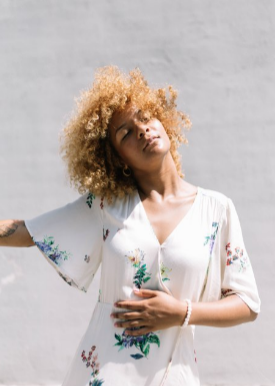National Identity, Citizenship, and Belonging: Afro-descendants in Spain and Catalonia – Agnes
By Abena Wariebi
The second excerpt from interviews taken from a Master’s thesis carried out by Abena Wariebi at the Universitat Pompeu Fabra in Barcelona, Spain.
Entitled “National Identity, Citizenship, and Belonging: Afro-descendants in Spain and Catalonia”, the thesis is an investigation of black identities in Barcelona, specifically exploring what it means to be black and Spanish, or black and Catalan.
These interviews represent a small part of the black community in Barcelona. This thesis is in no way conclusive or overall encompassing. It does not represent the views or opinions of all Afro-descendants in Barcelona or Spain. Nevertheless, these accounts are powerful, enriching, and demonstrate the unquestionable solidarity that exists within the diaspora.
Name: Agnes
Age: 20
Profession: Teacher and Photographer

“I think my mum is the only person in the world who thinks I’m Spanish. Because when I go out on the street, when like a policeman comes and they see my passport or whatever they keep asking ‘oh but where are you from? This says Spain; this says you were born in Barcelona but where are you from? Where is your dad from? Where is your mum from? So, I feel like, I don’t want to be Spanish.
I really feel like I’m Cameroonian. And in a way my dad always tried to raise me to feel like I’m not Spanish, I’m Cameroonian.”
“To be an Afro-descendant here is hard. Like I’ve explained, you never feel this is your place… ‘Cause I’ve also lived in France, and in the UK, and there are a lot of black people there and people that can say I’m black British or black French without having someone question how they identify. But here it’s like no one would believe you’re Spanish if you’re black.
I think I’m perceived as a black person. I’m not sure if Spanish people really make that separation between black people and mixed people. I believe through my experiences with them that to them we’re all black… A lot of people come to me and say, you’re black, but you’re not like that Senegalese guy who is selling on the street. And it’s like well, you don’t know how I feel and how I identify.”



